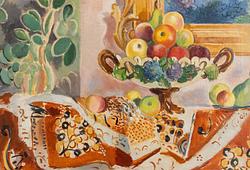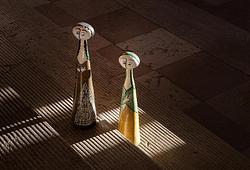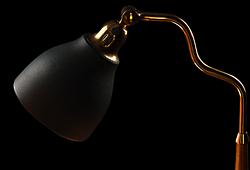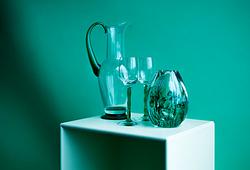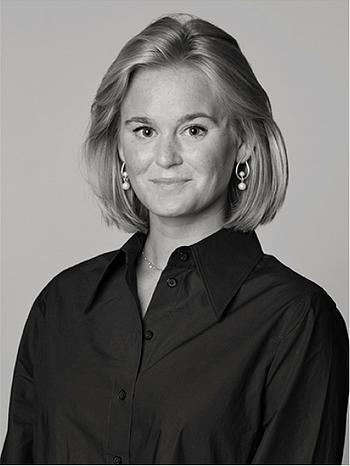Einar Jolin
View of Kastellholmen.
Signed Jolin and dated 1915. Canvas 63 x 46.5 cm.
Alkuperä - Provenienssi
Swedish private collection.
Muut tiedot
Nils Palmgren writes the following about Jolin's early Stockholm paintings: ‘Now that the road back to France was closed by the war, Jolin decided to settle in Stockholm. High up on the heights of Södermalm, Fiskargatan 9, the so-called Skandalhuset, he found a suitable studio, from where he had a breathtaking view of the city, Strömmen and the inlet ... He had barely got his easel and paintbox through the door of his den before he set to work. From his beautiful windows he could cut up the view in pane after pane, whether on the height, or lengthwise, or towards Riddarholmen, or towards Stadsgården, putting the dominant one here in front of the water or putting it beyond. Jolin sat here and worked on a number of large canvases and many small ones in 1914 and 1915, producing blond, fresh images, happy pictures of youth, inspired and usually laid out in a few sequences. Strong outlines. Quick, sweeping brushstrokes. A cultivated and springy, yet rich palette. Against the large, calm planes with lots of pink, cool, thin blue, beige, ivory, turquoise and emerald, Jolin inserts a few details, chosen so that they give a living pattern and populate the environment. At the same time he adds accents (he learnt from Corot).’ (Nils Palmgren, “Einar Jolin”, 1947)




